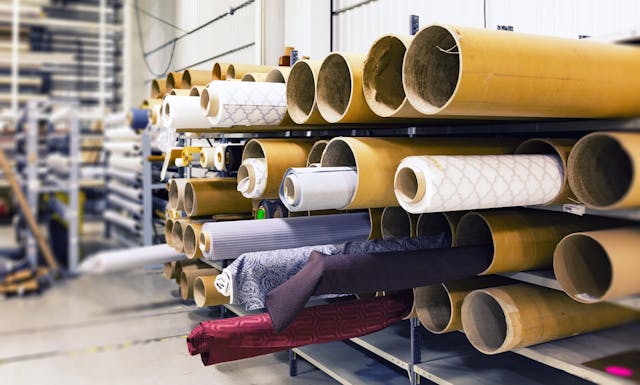
Can Chinese companies (or non-EU companies in general) participate in public tenders in Italy?
Can non-EU products be offered to the contracting authorities in these tenders?
The questions set out above form the basis of a dispute recently resolved by the Lazio Regional Administrative Court, Section II-bis, in the judgment no. 21202 of 2024.
It offers interesting insights to reconstruct, in a nutshell, the discipline of our Public Procurement Code on an issue that is becoming increasingly important in the globalised market: the participation of non-EU companies or products manufactured outside the borders of the European Union in Italian public procurement procedures.
On this issue, there is no solution of continuity between the old and the new Code, since the rules that regulate the matter in Legislative Decree no. 50/2016 have remained virtually unchanged in the current D. Lgs. no. 36/2023.
The case
The judgment concerns a contract for the supply of electric buses: the runner-up had challenged the award on two grounds, claiming that
1) The winner could not actually have participated in the tender because it had availed itself of a Chinese company requirements. However, it should have been excluded from participating in the Italian tender procedures because the People’s Republic of China has not signed any international agreement allowing its companies to participate in public procurement in the EU market;
2) in any event, the contracting authority failed to state the reasons for its decision not to exclude from the tender procedure the offer of the successful tenderer, consisting in the supply of products manufactured for more than 50% in a non-EU country. This would be contrary to the provisions of Article 170 of the Italian Public Procurement Code, which applies to contracts in the so-called special sectors, such as the one at issue.
The relevant rules and the decision on the first ground.
The judges in Rome were right to point out, first, that only companies from countries that have either
– ratified the Agreement on Government Procurement (GPA) under the Marrakesh Agreement of 1994 (which established the World Trade Organisation – WTO); or
– concluded other international agreements with the European Union to open up their public procurement markets on the basis of reciprocity;
have the right to take part in EU Public Procurement tenders.
This is provided for in Article 69 of the current Public Procurement Code (Legislative Decree No. 36/2023).
On the other hand, companies from countries that have not signed a public procurement agreement with the European Union, such as China or India, only have the possibility, not the right, to take part in tenders: there is no prohibition on their participation, but only a non-guaranteed possibility at the discretion of the contracting authorities.
It follows that the contracting authorities can exclude such companies without having to give reasons.
This regime is derived from the European Commission’s “Guidelines on the participation of third country bidders and goods in the EU procurement market” of 24 July 2019 (Communication C(2019) 5494 final) and has been confirmed on several occasions by our administrative case law (see, for example, TAR Piemonte, no. 1110/2021).
In the present case, therefore, the TAR considered that the Chinese company had not to be excluded from participating (even if only ‘indirectly’ through the availment) in the tender procedure.
For this reason, the TAR rejected the first ground of appeal.
The further applicable rules and the decision on the second ground of appeal
The same judges then examined the second ground of appeal, which alleged a violation of Article 170 of the Public Procurement Code (similar in all respects to Article 137 of the ‘old’ Code).
It applies to supply contracts in the so-called special sectors, i.e:
– gas and heat
– electricity
– Water;
– transport services;
– ports and airports
– Postal services;
– gas extraction and exploration or extraction of coal or other solid fuels.
This article concerns ‘tenders containing products originating in third countries with which the European Union has not concluded, in a multilateral or bilateral context, an agreement guaranteeing comparable and effective access for European Union companies to the markets of those third countries’ (paragraph 1).
It states that bids containing more than 50% of the total value of products originating in such third countries must, as a general rule, be excluded from tenders launched in Italy.
In fact, Article 170 imposes an increased burden of justification on the contracting authority not to reject a bid containing more than 50 per cent of goods produced in a third country.
This provision implements the EU-derived principle of “comply or explain”; therefore, the contracting authority’s decision not to exclude a non-EU manufacturer from the specific procedure is an exception that must be accompanied by an explicit and reinforced justification (and by the transmission of the tender documents to ANAC).
Paragraph 3 of the same article also makes it clear that, in the event of the equivalence of such a tender with another containing EU products, preference must be given to the tender containing EU products (unless certain conditions, also mentioned in the same paragraph, are met).
Against this background, in the case at hand, the Regional Administrative Court found that the contracting authority had admitted to the procedure the offer (which later turned out to be the winning bid) for goods manufactured for more than 50% of their value in the People’s Republic of China, without, however, providing the justification for this choice, as it should have done.
For the above reasons, the Court upheld the second ground of appeal and set aside the award.
The conclusions
Returning to the questions in the title of this article, it could be said that the answer to both is in the affirmative, albeit with various limitations and caveats.
In this respect, it is important to carefully assess the specific characteristics of each case, since participation in or exclusion from tenders depends to a large extent on the specific situation brought to the attention of the legal adviser.
Note: The Chinese translation of the article will be available on the company’s WeChat profile.
Andrea Giardini, Senior partner, Zunarelli Studio legale Associato, andrea.giardini@studiozunarelli.com








